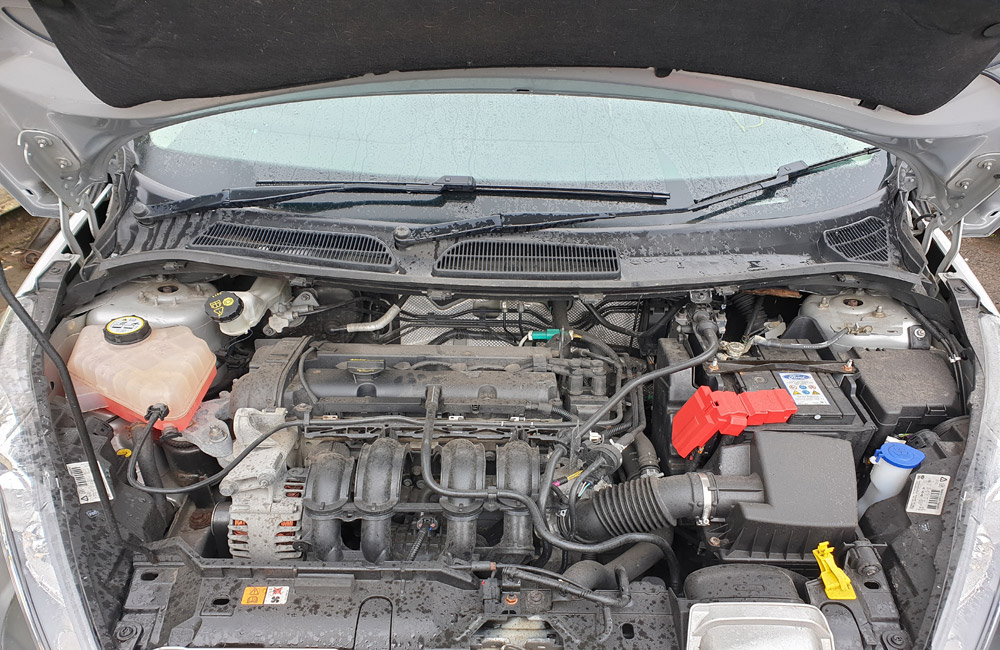Protect Your Investment with Proper Ford Fiesta Engine Maintenance
Wiki Article
Unlocking the Power of Engines: A Comprehensive Guide to Performance and Performance
Comprehending the complex auto mechanics of engines is critical for both performance enthusiasts and daily vehicle drivers. The answers may redefine our approach to engine performance and performance in means that are both enlightening and necessary.Recognizing Engine Essentials
What makes up the basic auto mechanics of an engine? At its core, an engine is an equipment created to transform gas into mechanical power with a series of regulated explosions or burning procedures.The crankshaft then changes this direct motion right into rotational power, which ultimately powers the lorry. The camshaft manages the opening and closing of the valves, managing the intake of air and gas and the expulsion of exhaust gases. Furthermore, the engine relies on a very carefully adjusted fuel-air mixture, ignition system, and cooling system to ensure ideal efficiency and performance.
Comprehending engine essentials likewise entails recognizing the value of engine cycles, such as the four-stroke cycle, that includes consumption, exhaust, compression, and power strokes. Each stage is essential in making certain the engine functions smoothly and efficiently. Proficiency of these fundamental technicians prepares for checking out more complicated engine characteristics and performance metrics, important for maximizing both power output and performance.
Trick Efficiency Metrics
Key performance metrics are crucial for evaluating an engine's performance and power output, providing important understandings for both manufacturers and consumers. These metrics work as benchmarks for engine performance, permitting notified choices in acquiring, design, and production.Among the key metrics is horsepower, which measures the engine's capacity to perform job over time. Torque, gauged in pound-feet, is another crucial metric that shows the engine's rotational pressure, directly influencing velocity and lugging ability. Gas effectiveness, normally gauged in miles per gallon (MPG) or litres per 100 kilometers (L/100km), examines how effectively the engine transforms gas right into movement, affecting environmental considerations and functional expenses.
Additionally, thermal performance procedures exactly how well an engine converts gas power right into beneficial work, revealing insights right into energy losses primarily via warm. Discharge levels, including CO2 and NOx, are additionally vital, reflecting the engine's ecological impact and compliance with governing standards.

Tuning Techniques for Efficiency
Tuning methods play a significant duty in improving engine effectiveness by maximizing performance metrics recognized in earlier conversations (ford fiesta engine). Different methods exist to fine-tune an anonymous engine, each contributing to improved fuel economy and reduced dischargesOne efficient strategy is changing the air-fuel proportion, making certain the engine operates within the ideal combustion routine. A leaner mixture can enhance fuel performance, yet it must be balanced to avoid misfires or engine knock. Furthermore, reprogramming the engine management system can recalibrate criteria such as ignition timing, which even more boosts effectiveness while maintaining power outcome.
One more essential technique includes customizing the intake and exhaust systems. Updating to high-performance air filters and exhaust headers can decrease back stress, facilitating better air movement. This allows the engine to take a breath more easily, causing enhanced burning efficiency.
In addition, the application of innovative tuning devices, like dyno testing, gives precise data that allows targeted changes. On a regular basis keeping track of these performance metrics makes sure that adjusting initiatives generate the preferred performance end results. Collectively, these methods not just strengthen engine performance but also add to lasting sustainability in engine operations.
Upkeep for Ideal Efficiency
Routine engine maintenance is crucial for accomplishing optimum performance and long life. A well-maintained engine not just operates efficiently but likewise decreases the danger of costly fixings and malfunctions. more tips here Secret parts requiring routine focus include oil, filters, belts, and ignition system.Changing the engine oil at recommended periods is vital, as oil lubes moving parts and avoids getting too hot. Replacing oil and air filters makes sure that impurities do not harm engine function. Overlooking these elements can lead to lowered performance and potential engine damage.
Furthermore, evaluating and changing worn belts and pipes is essential to stop sudden failures. Timing belts, particularly, should be replaced according to the supplier's schedule to stay clear of tragic engine damage.
Ignition system need to additionally be checked and changed as necessary, given that they play an important function in ignition and fuel efficiency.
Future Fads in Engine Technology
Accepting improvements in technology, the future of engine layout is poised to transform performance and efficiency across various applications. Crossbreed and totally electrical powertrains are coming to be significantly mainstream, providing decreased emissions and boosted gas performance.Additionally, developments in materials science are resulting in lighter, stronger parts that enhance engine performance while lowering energy consumption. Advanced production methods, such as 3D printing, permit the development of complicated geometries that boost airflow and thermal management, thus optimizing burning procedures.
Furthermore, the assimilation of expert system and device understanding is set to transform engine diagnostics and performance tuning. These technologies can examine vast quantities of data in actual time, allowing anticipating maintenance more and tailored efficiency enhancements.
Final Thought
In conclusion, unlocking the power of engines calls for a thorough understanding of their mechanics and performance metrics. Carrying out reliable tuning techniques and adhering to routine maintenance techniques considerably boost engine abilities.In addition, the engine counts on a very carefully adjusted fuel-air mix, ignition system, and cooling down system to make sure ideal performance and performance.
Recognizing engine essentials likewise involves identifying the importance of engine cycles, such as the four-stroke cycle, which includes consumption, exhaust, power, and compression strokes. Mastery of these basic auto mechanics lays the groundwork for discovering a lot more intricate engine dynamics and performance metrics, essential for optimizing both power output and efficiency.

Welcoming improvements in innovation, the future of engine layout is positioned to revolutionize efficiency and effectiveness throughout various applications.
Report this wiki page